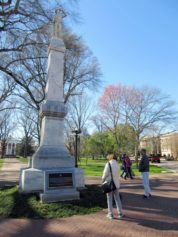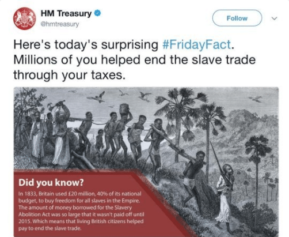If the names of Confederate leaders should be removed from public schools around the nation, we should not stop at the Confederacy. There are a number of U.S. presidents who not only did nothing to end slavery, but had enslaved Africans of their own. These individuals appear on the money we spend, monuments, schools and have holidays in their honor.
A report in the Huffington Post takes a first step at assessing the number of schools in the U.S, which are named after Confederate leaders. An analysis based on the National Center for Education Statistics data from the 2012-2013 and 2013-2014 school years found that at least 189 public schools honor Confederate leaders, politicians or soldiers. Moreover, at least 118,515 students attend these schools, and a majority of the students attending these schools are children of color (57 percent). The actual number of schools is likely much larger.
In recent years, there have been efforts to rename buildings named after Confederate figures, an issue which is receiving more attention now in light of the attention paid to the flying of the Confederate flag in state houses in the South. In June, students at the University of Texas at Austin called for the removal of a statue of Confederate president Jefferson Davis from the campus. In May, the Board of Trustees of the University of North Carolina at Chapel Hill voted to rename William Lawrence Saunders Hall, a building bearing the name of a Confederate colonel and founder of the Ku Klux Klan in the state. Despite efforts to rename the building in honor of Black writer Zora Neale Hurston, the university changed the name to Carolina Hall.
According to Robert Lopesti, a librarian at Western Washington University who has compiled extensive research, 12 presidents owned enslaved people, and eight owned them while they were president.
The presidents who owned enslaved Africans while president were George Washington, Thomas Jefferson, James Madison, James Monroe, Andrew Jackson, John Tyler, James K. Polk and Zachary Taylor.
Meanwhile, the other presidents who owned African people in bondage, but not as president were Martin Van Buren, William Henry Harrison, Andrew Johnson and Ulysses S. Grant.
Washington, the first American president (1789-1797), owned 216 enslaved people. Thomas Jefferson (1801-1809) was one of the largest slave owners in Virginia, with 141. In 1997, John Riley, the historian at Mount Vernon, told the New York Times there were 450 schools in the U.S. named after the first president.
Factcheck.org notes that Taylor, the last sitting president to own enslaved Africans (1849-1850), held 100 Black people in bondage and owned a Mississippi plantation. Ironically, the last president who ever owned enslaved people was Grant, the Union Army general who freed his slave William Jones in 1859.
Meanwhile, there were prominent slave owners such as Benjamin Franklin who never served as president. According to the Benjamin Franklin House in London, “We know that Franklin owned Peter and his wife Jemima, and a young boy named Othello, who may have been their son, bought in June 1757 for £41 and 10 shillings. Other slaves in the Franklin household were George and John. Deborah [Franklin’s wife] wrote to Franklin in June 1772 that since the death of George’s wife, he had become a ‘dredfull cryer’. John was released and accompanied Franklin to London in 1764.”
In addition, Franklin’s newspaper The Pennsylvania Gazette, advertised enslaved people for sale in the 1730s. One such advertisement read: “A servant man’s time for nearly three years to be disposed of. He is a joiner by trade and a very good worker.” Reportedly, Franklin was involved in abolition efforts later in his life.
As the U.S. celebrates Independence Day, when the thirteen colonies gained its ”freedom” from colonial England, we are reminded that many of the nation’s founders and leaders kept Black people in chains. Removing the names of Confederate leaders is necessary and a good start, but we cannot stop there. And given that potentially hundreds upon hundreds of schools are named after owners of enslaved people and others who supported or profited from slavery, there is a lot of work to do.

